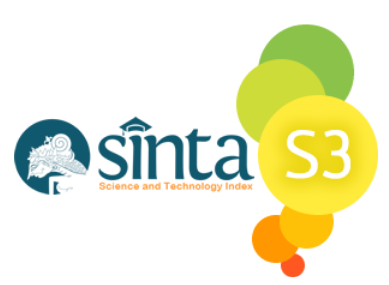INTENSITY IN CHOOSING STUDY PROGRAMS AT THE UNDERGRADUATE LEVEL
Mirza Maulinarhadi Ranatarisza
Erudio, Vol 5, No 2 (2018), pp.
DOI https://doi.org/
Abstract
This research aimed to explore the factors influencing students in the decision-making of selecting taxation study program and to find out the most dominant factors. This research was an exploratory research using a quantitative approach with factor analysis. The factor analysis, in this case, was intended to summarize or reduce the observed variable as a whole into several new variables or dimensions which were still able to represent the main variable. The results of factor analysis and factor loading calculation that had been rotated from the 12 research variables (consisting of product, promotion, price, place, sub-culture, social class, reference group, family, personality and self concept, lifestyle and value, perception, and motivation) resulted in the formulation of 4 (four) factors as follows: 1) the first factor is individual characteristics, 2) the second factor is environmental characteristics, 3) the third factor is marketing stimuli in the physical form, and 4) the fourth factor is marketing stimuli in the form of perception influence. The results of this research are expected to serve as a basis in preparation to support the role of university, primarily on the quality of education to generate superior and innovative human resources. Additionally, the research findings are hoped to be used as one of the evaluation materials of educational institutions in general in terms of the improvement of study program brand or image for generating the recognition from graduate user stakeholders, the increase of values and competitiveness in generating graduates according to the work world demands, the creation of study program competitive advantage, and more importantly the improvement of administrative performance and academic services.
Keywords
Internal factor; external factor; decision making
Full Text:
PDFRefbacks
- There are currently no refbacks.
Copyright (c) 2019 Erudio Journal of Educational Innovation

This work is licensed under a Creative Commons Attribution 4.0 International License.












